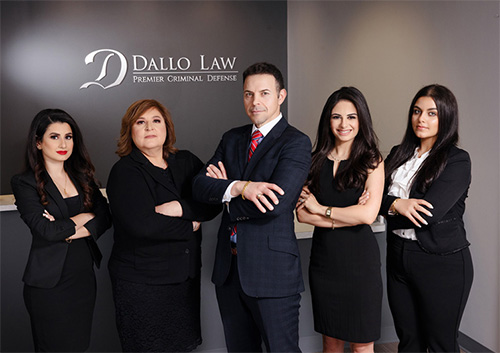If you were accused of the crime, it is important to understand the procedures that apply to each phase of the case. Most prosecutions begin with an investigation by a law enforcement officer whose job is to interview witnesses and gather evidence. The purpose of this is so the officer can develop probable cause that a crime was committed and then make an arrest on the spot or refer the case to the prosecuting attorney with a request for a warrant or charging document.
The case is then submitted for a charging or warrant request, and a prosecutor with the Prosecuting Attorney’s office determines whether anyone should be charged with a crime. They will also decide what the defendant will be charged with based on the available evidence.
To make that determination, the prosecutor will look at the suspect’s criminal history record, police reports created during the investigation, witness statements, body cameras or surveillance video, and other physical evidence. The prosecutor might send the case back to the law enforcement officer to conduct a more thorough investigation if they believe they have insufficient evidence to go to trial.
If the prosecutor reviewing the file believes that probable cause does exist and that the charges can be proven at trial, then the prosecutor will issue a charge or charges. If the suspect is not already in custody, a warrant for the person’s arrest might be issued. Law enforcement will then go out and seek the defendant based on whether they were issued an arrest or bench warrant.
Attorney on Criminal Procedures in Michigan
In addition to understanding the criminal statutes, criminal defense attorneys must also understand the criminal procedures that occur at each stage of a prosecution. Failure to do so could cause you to lose the case and your freedom. If you have been charged with a felony or misdemeanor, then contact an attorney at Dallo Law, P.C. to learn more about the criminal procedures that might be involved in your case. J. Dallo has years of experience under his belt fighting these all types of criminal charges and will work tirelessly to get you the best possible outcome for your case.
Contact us to discuss the criminal investigation, requirements for any criminal charges, and the best defenses to fight the case. Call (248) 283-7000 to set up your first consultation free today. Dallo Law, P.C. accepts clients throughout the greater Oakland County and Macomb County area including Bloomfield Hills, Troy, Pontiac, Southfield, Royal Oak, Waterford Township, Clinton Township, Roseville, Warren, Sterling Heights, Fraser, New Baltimore and Utica.
Information Center:
- What is a Misdemeanor?
- What Happens At Arraignment?
- Criminal Procedures in Misdemeanor Cases
- Criminal Procedures in Felony Cases
- Prelim of a Felony Case
- What Happens at a Circuit Court Arraignment?
- Conditions After Release on Bond
- Expungement for Certain Crimes
- Additional Resources
What is a Misdemeanor?
If you received a misdemeanor ticket, then you must appear in court on the date and time indicated on that misdemeanor ticket. In those cases, arraignments are conducted on a walk-in basis between the hours of 8:30 a.m. to 4:00 p.m. on Monday through Friday (with a lunch break from 11:30 a.m. to 1:30 p.m.).
If you miss the court date by failing to appear in court on a misdemeanor or felony charge, then the judge may issue a bench warrant for your arrest and your bond will be forfeited. This means the police won’t actively search for you, but if you’re stopped for whatever reason by law enforcement you will be arrested immediately. After the warrant is issued, your first move should be to contact an experienced criminal defense attorney who can help you appear in court to be arraigned.
You will be transported to court by the police agency or you will appear in court for a video arraignment if you are already in custody for the crime. For example, in Oakland County, MI, a video arraignment might be scheduled between the arresting police agency or Oakland County Jail and the 48th District Court.
What Happens at the Arraignment?
The District Court Arraignment is the first court appearance for a felony or misdemeanor charge. Defendants are required to appear in the District Court for arraignment if they’ve been arrested and charged for a felony.
At the arraignment, the court might do any of the following:
- Read the charge or charges contained in the complaint to the defendant;
- Set a bond and pretrial release conditions (if the defendant is in custody);
- Explain the maximum penalty if convicted;
- Advise the defendant of his or her constitutional rights;
- Inquire if the defendant needs the court to appoint an attorney; and
- Enter a plea of guilty or not guilty on the defendant’s behalf.
The way the case proceeds through the system after the arraignment depends on whether the charges are for a felony or a misdemeanor.
Criminal Procedures in Misdemeanor Cases
Defendants who enter a guilty or no contest plea at arraignment, will either be sentenced on the spot or set the case off for a sentencing hearing. If the case is set for a sentencing hearing, the court might ask the probation department to prepare a pre-sentence report. The report will discuss background information about the defendant and makes a recommendation regarding what sentence should be imposed. If the defendant enters a not guilty plea, then the case will be set for a pre-trial conference.
In misdemeanor cases, the pre-trial conference gives the defendant, the criminal defense attorney, and the prosecutor a chance to discuss a possible resolution to the case. Often the prosecutor will offer a “plea bargain” in order to encourage the resolution of the case. Depending on the defendant’s counsel, it might be a good idea to take this plea bargain rather than let the judge decide the verdict. The prosecutor might even decide to drop the charges if the defense attorney can convince the prosecutor that a viable defense to the charge exists that makes a successful prosecution unlikely.
If the prosecutor does not drop the charges and the parties can’t agree on a resolution, then the criminal defense attorney might file any of the following pretrial motions:
- A motion to dismiss the charge if the undisputed evidence shows that no crime occurred;
- A motion to exclude irrelevant or overly prejudicial evidence; or
- A motion to suppress illegally obtained evidence.
If the motions do not resolve the case, then the case is set for a bench trial or a jury trial.
Criminal Procedures in Felony Cases
At a felony arraignment in District Court, the defendant almost always enters a “not guilty” plea and the case is reset for the next court date. The defendant is then told of his right to a preliminary examination within fourteen (14) days of the arraignment. At the arraignment, the court will inquire about whether the defendant has already retained a private criminal defense attorney or needs a public defender to be appointed.
The court might schedule a “Pre-Exam Conference” a few days before the scheduled Preliminary Examination. At the Pre-Exam Conference, the defendant, the criminal defense attorney, and the prosecutor might discuss a possible plea deal to resolve the case short of trial. Similar to a misdemeanor plea bargain, sometimes the penalties offered in a plea bargain are significantly less if the defendant was sentenced by a judge.
The Preliminary Examination (Prelim) in a Felony Case
Crimes that are punishable by more than one year of incarceration are classified as felony offenses. For a felony, the initial stage of the case is known as the arraignment. An arraignment includes the pre-exam conference and preliminary examination which are held in the district court where the incident occurred. During the early stages of the case, the district court can accept a felony plea, but all further proceedings are bound over to the Circuit Court.
If no agreement is reached, then the prosecutor might subpoena witnesses for the Preliminary Examination (often called the “Prelim”). In many cases, the defendant can waive the right to a Preliminary Examination by signing a “waiver.”
The Prelim is a contested hearing. At the hearing, a District Court Judge decides whether probable cause exist to believe that the charged crime was actually committed and that the defendant was the person who committed the crime. The burden of proof at the Prelim is much lower than at trial. As a result, the prosecutor normally will only call upon a few witnesses. The witnesses that testify at the Preliminary Examination often include the alleged victim, witnesses, or the investigating officer.
The criminal defense attorney can then cross-examine the state’s witnesses or present his own witnesses or evidence. If the court decides that probable cause does exist, then the defendant is “bound over” to the Circuit Court for trial. On the other hand, if the judge decides that probable cause does not exist, then the judge can bind the case over on different charges.
Sometimes the court reduces the charges to misdemeanors for trial in District Court. In other cases, the court can dismiss the charge entirely.
What Happens at the Circuit Court Arraignment?
If the case is bound over to the Circuit Court, then the next court date is called the “Circuit Court Arraignment.” At the Circuit Court Arraignment, the defendant is again read the charges or provided with a copy of a charging document known as the Information. The court will then tell the defendant about his or her constitutional rights, including their right to a fair trial. The court will then accept either a plea of guilty or not guilty.
After the Circuit Court Arraignment, the court might schedule a meeting between an Assistant Prosecuting Attorney and the criminal defendant’s attorney to learn more about whether the case will go to trial or be resolved with a plea bargain. If the case is not resolved, the criminal defense attorney might file pre-trial motions to suppress or exclude evidence or to dismiss the charge entirely. If the pretrial proceedings or motions to not resolve the case, then the case will be set for a bench or jury trial.
Release on Bond or Conditional Release
At your first appearance, a judge will set your bond required to make bail. In some Michigan courts, there are already set bonds for certain common offenses. In that case you may not have to wait until your first appearance to obtain a bond. You can post bond through a surety bond, which is where you pay a fee of 10 % of your full bail amount and a bondsman company will pay the full bail so you can leave county hail.
If you posted bond, the judge or magistrate might have imposed conditional release conditions. After being released on bond, you follow any instructions verbally given or stated in writing on your bond order. You should not wait for the conditional release program to contact you. Instead, you are responsible for compliance with your conditional release.
Expunge a Conviction
If you were convicted of a non-traffic offense reportable to the Secretary of State, that conviction may be set aside by the court, as provided in MCL 257.732 (20). Although, it’s important to note that the court cannot order the removal of the notation on the driving record.
To expunge the conviction, you must wait until:
- 5 years after the date you were sentenced for the conviction if you were not imprisoned; or
- 5 years from a term of imprisonment for the conviction if you were incarcerated.
An attorney at Dallo Law, P.C. can help you complete the Application to Set Aside Conviction – MC227.
Additional Resources
Prosecuting Attorneys Association of Michigan (PAAM) – As a voluntary association of the 83 county prosecutors, the Attorney General, and the U.S. Attorneys serving in Michigan, PAAM is non-profit organization. Founded in 1928, its mission is listed in Michigan Compiled Law Section 49.62. PAAM is governed by a Board of Directors consisting of the Michigan Attorney General, active past presidents, 14 elected directors, and 5 officers.
Michigan Court Procedures – Visit the official website for the Michigan Courts to read their Michigan Court Rules for criminal cases. Access the site to learn what a speedy trial is, your right to a lawyer, preliminary proceedings and more.
Aggressive Defense Attorney in Oakland County, MI
Getting charged with a crime is a shock to anyone. Not to mention the criminal justice system in Michigan is complex and you don’t have a lot of time to study it. Instead find reputable and knowledgable legal representation with J. Dallo at Dallo Law, P.C.. His years of experience puts Mr. Dallo ahead as he can investigate every legal route to get the best possible outcome for his clients. Don’t wait another minute fighting these charges by yourself and get a real fighter in the ring with Dallo Law, P.C..
Set up your first consultation for free by calling J. Dallo at (248) 283-7000. Our offices are located in Bloomfield Hills Michigan, but we also accept clients throughout the greater Oakland County and Macomb County area.









